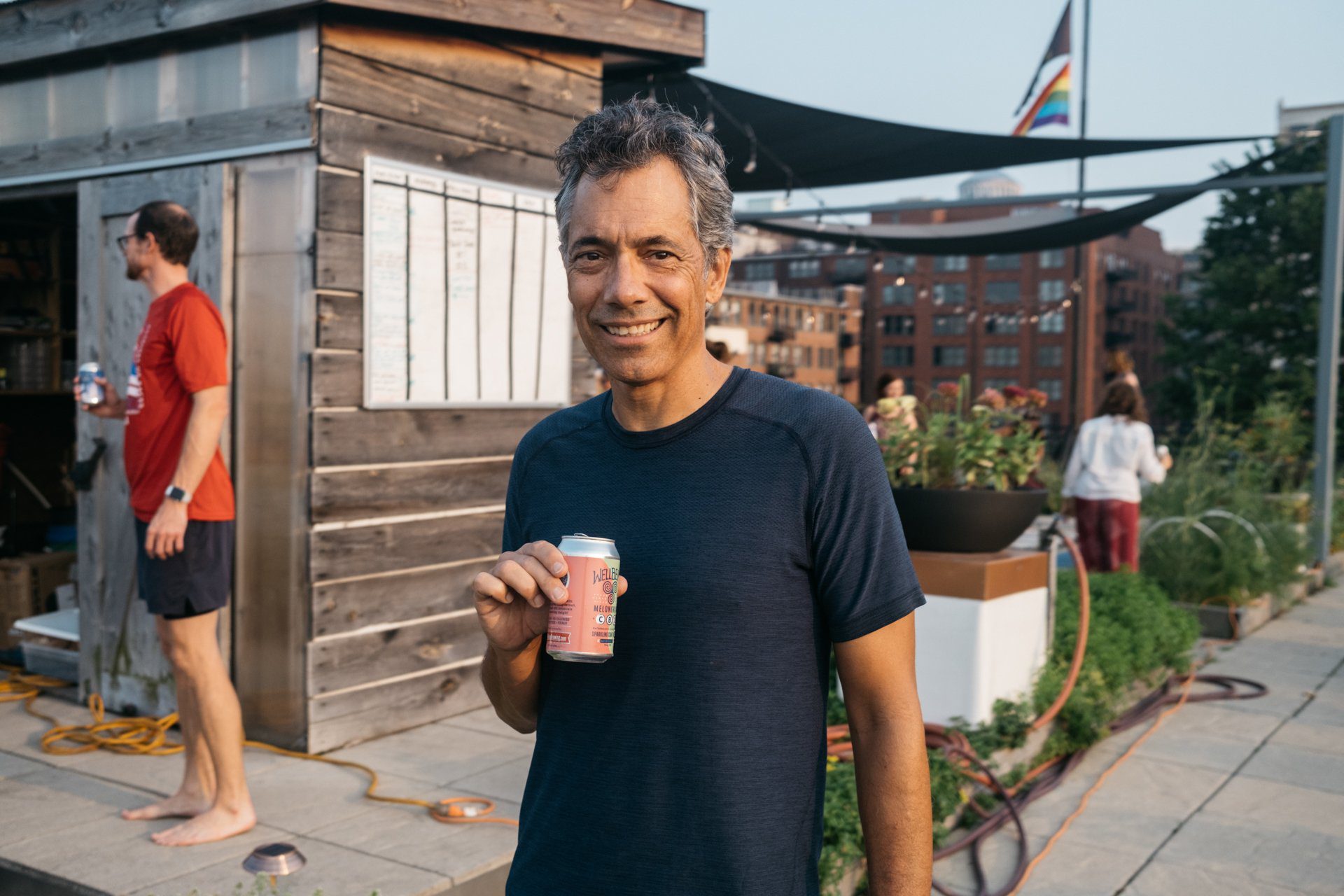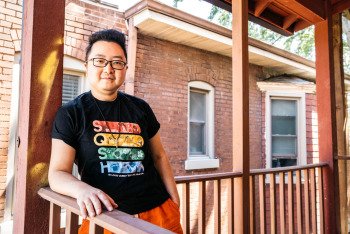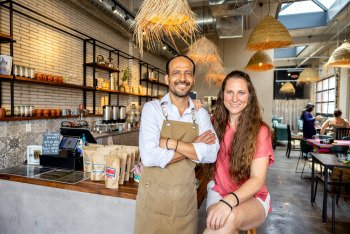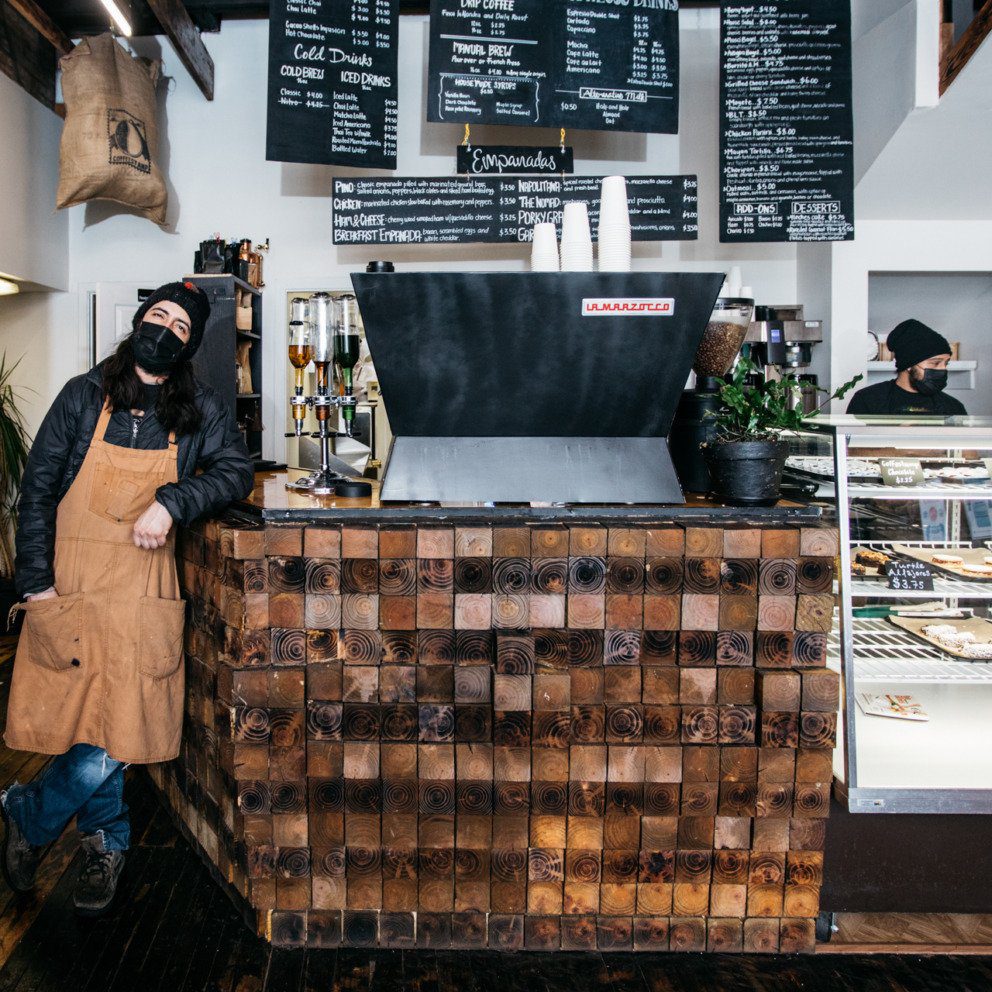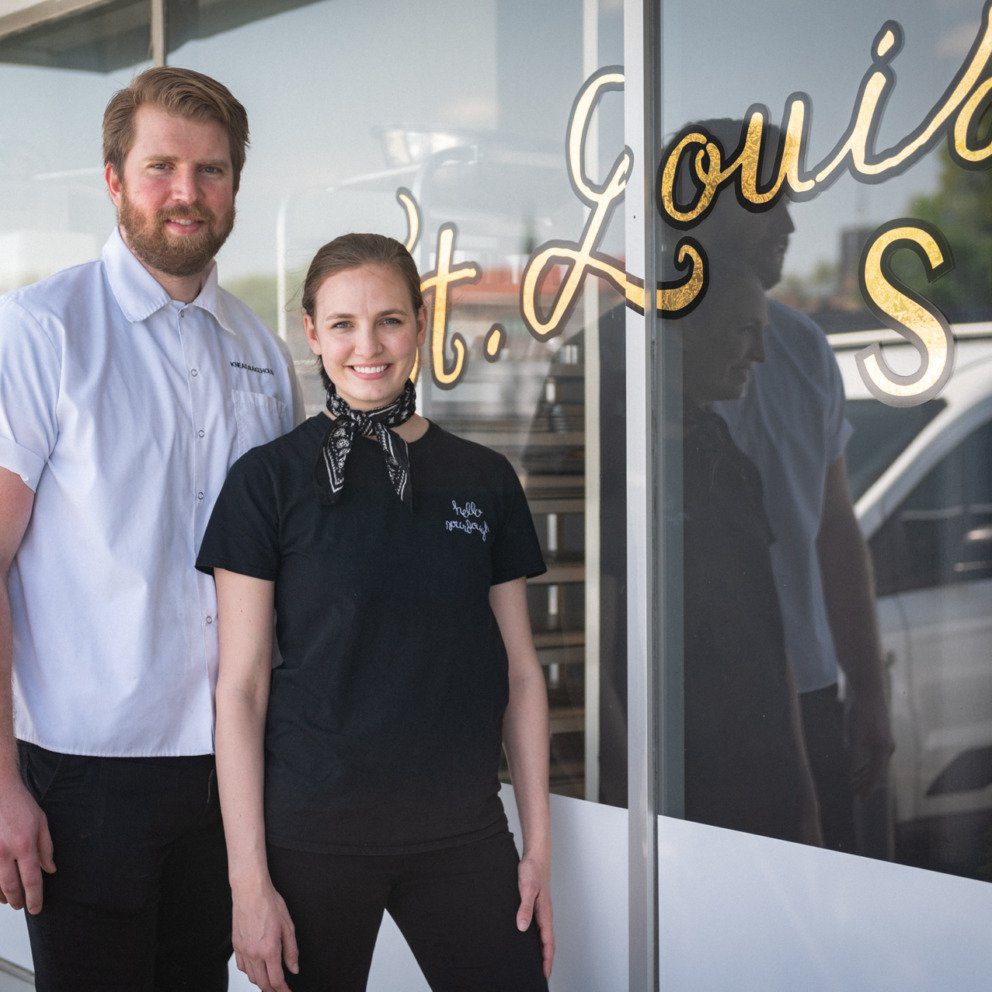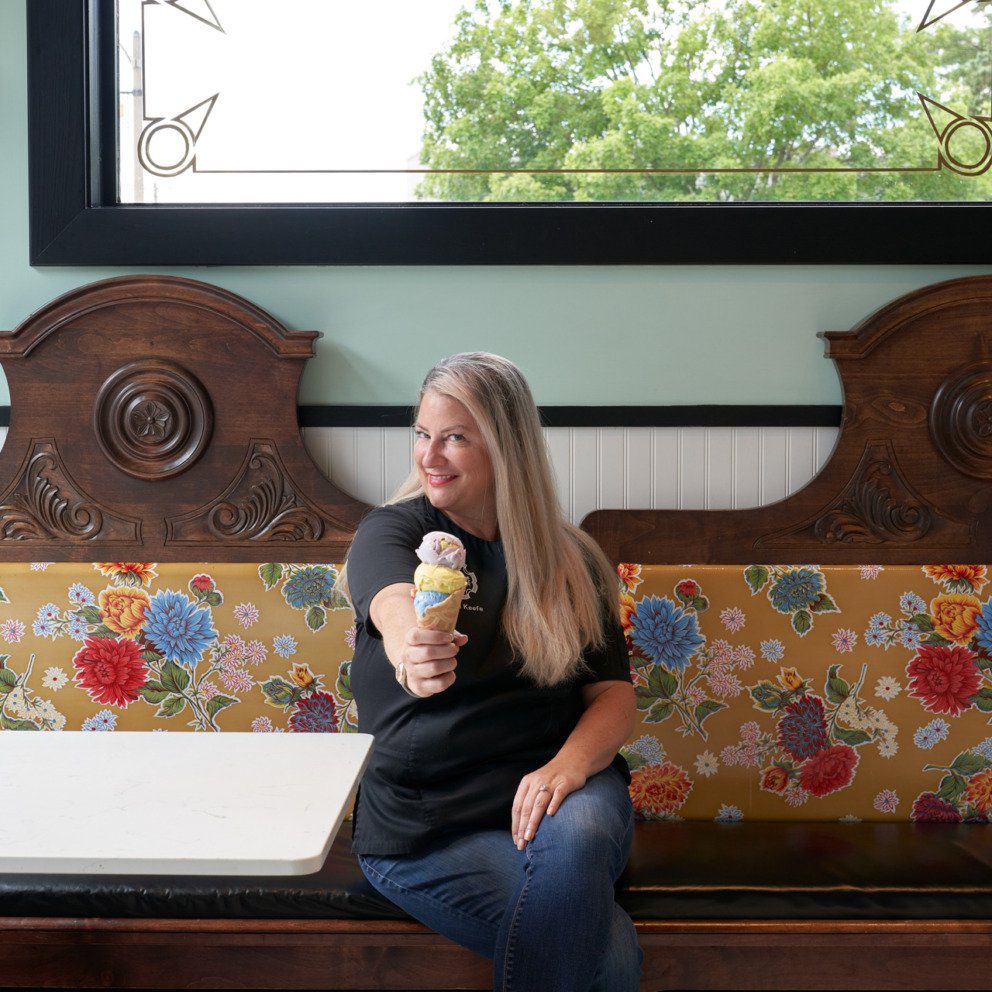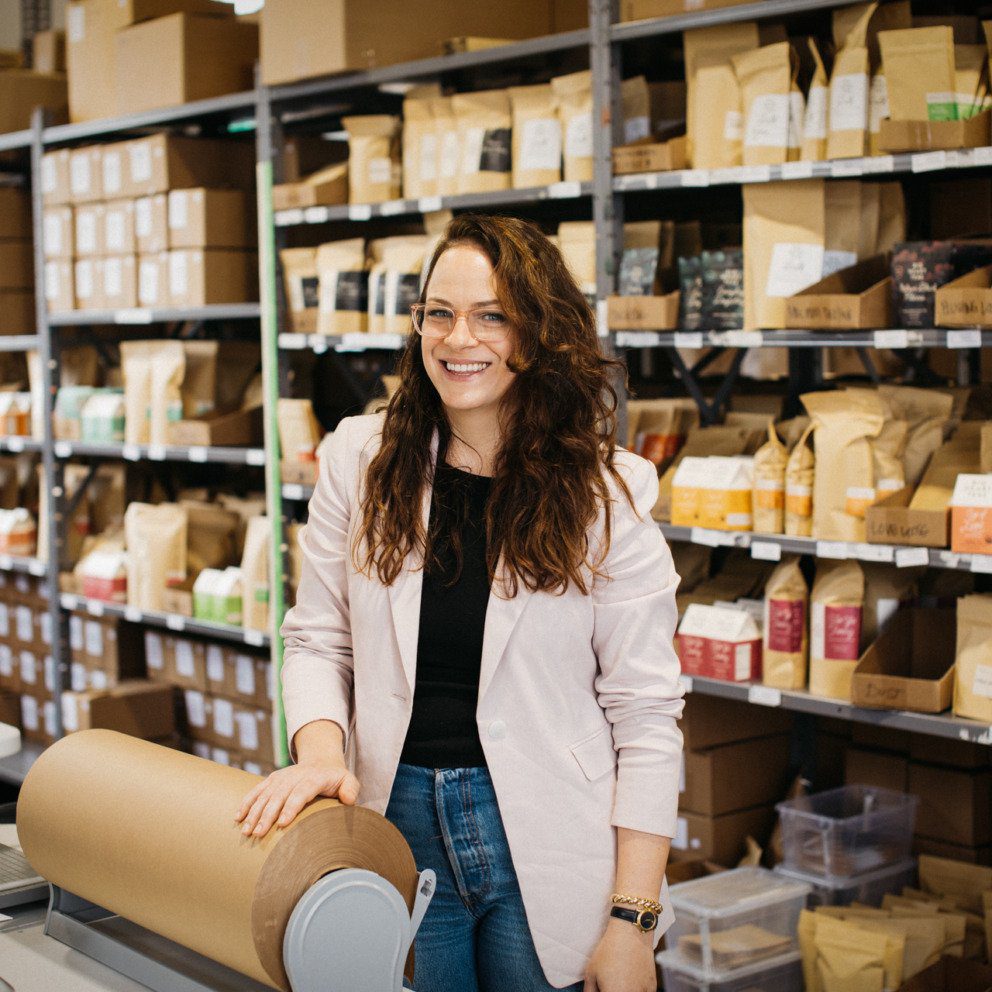Be(er) Well
With WellBeing Brewing's craft nonalcoholic beers and waters, Jeff Stevens is helping reframe the stigma around sobriety.
Three years ago, Jeff Stevens stood at the canning line at O’Fallon Brewery and tasted the first batch of Heavenly Body Golden Wheat.
“I think we got something here,” he thought as he sipped the debut nonalcoholic offering from WellBeing Brewing Co., which he founded with his wife Genevieve Barlow in 2017.
After he stopped drinking at 24, Stevens, then an advertising executive, struggled to find something nonalcoholic that he could enjoy. It seems he wasn’t alone: In 2020, NA beer sales in the U.S. rose 38 percent from the previous year, no doubt in part due to the events of March 2020 and all that followed.
“There have been lots of stories about people drinking more – as you would – to deal with this crisis,” says Stevens, “but I do also think many people found they were drinking too much or that this was a good time to do the exact opposite.”
Stevens noticed this trend building years earlier during his time as co-host of a podcast focused on sobriety and recovery.
“It accelerated something that was already happening,” he says. “People in general were becoming more mindful of their alcohol consumption. In 2015, ’16, ’17, I noticed, coming from the world of recovery and being in the digital world of recovery,” says Stevens, “that a lot of those conversations were happening.”
Stevens notes that most people have a normal relationship with alcohol, but he’s found that especially as people hit their late 20s and early 30s, they begin to rethink their drinking habits and decide if it’s something that’s working in their lives or not. And whether it’s for a “dry January” or longer, having a nonalcoholic beverage can make sober socializing easier.
“What’s good about our product is we have given you permission to find connection. You’re missing nothing – but the hangover – because there’s just no more stigma attached with making nonalcoholic choices,” he says. “What we’ve really accomplished is leading the movement where it’s totally normal to ask for a nonalcoholic beer. I don’t think anyone bats an eye in most places, which is great. It’s always something we hoped to accomplish.”
WellBeing’s brews are popular with beer enthusiasts and teetotalers alike because they’re made as craft beer, with barley, water, hops and yeast, before the alcohol is removed. Beers like the Coffee Cream Stout and Intentional IPA use lactose, just like their more traditional counterparts, resulting in a nonalcoholic option that gives you the taste and mouthfeel of various craft beer styles. You can smell and taste the hops; they aren’t boiled off as with other nonalcoholic beers.
Since 2018, WellBeing has expanded its portfolio to include two sparkling CBD waters, which are gluten-free, and seven beers. Today, WellBeing’s beers are brewed and dealcoholized at O’Fallon Brewery in Maryland Heights, while the CBD waters are brewed at 4204 Main Street Brewing Co. in Belleville, Illinois, and canning takes place at 2nd Shift Brewing on The Hill.
Inspiration for the brews comes in different forms, Stevens says. Liquid Rain IPA, for example, is a collaboration between WellBeing and St. Louis’ 4 Hands Brewing Co., with a portion of the proceeds going to Chicago-based nonprofit Hope for the Day. Focused on mental health education and suicide prevention, Hope for the Day teamed up with three breweries to launch Things We Don’t Say IPA to help shift the approach to mental health — encouraging people to talk about their experiences and ask for help when they need it — and called for other brewers to use their platforms to do the same.
Joel Frieders, director of public policy at Hope for the Day, told Sauce Magazine: “This conversation about mental health isn’t and shouldn’t be limited to just those who choose to consume alcohol… those in the recovery and discovery community are just as much a part of the conversation about mental health in the craft beverage industry as anyone.”
Stevens recognized that physical health can be another factor in choosing not to drink, and to that end, the WellBeing team created Victory Citrus Wheat, a “sports brew” with a hint of orange zest and a full spectrum of electrolytes from St. Louis-based Buoy – the same kind of electrolytes you’ll find in Gatorade.
“It’s a beer built to help you hydrate,” Stevens says. “The formula was developed to prevent people from being hungover, which is really fun. It’s a good last call drink. It’s also a great sports recovery beer after a run.”
WellBeing also partners with local businesses focused on health and mindfulness, such as Citra Fitness & Movement. Every full moon from June to August, Citra and WellBeing host Full Moon Flow yoga on the rooftop of Jefferson Underground in south St. Louis, with a complementary CBD water to “extend your zen.”
Since its launch, WellBeing’s products quickly gained traction in St. Louis, and are sold at Schnucks, plus area Whole Foods, Fresh Thyme and Total Wine & More. They’ve gained national distribution with 34 distributors across the country, and recently opened an East Coast brewing facility in Virginia Beach, Virginia, run by craft beer veteran Mitch Steele to meet this expanded footprint. “He literally wrote the book on IPAs,” Stevens says with a laugh.
“I think coming from St. Louis gives us credibility in the brewing world,” he says of WellBeing’s national growth. “Our beers are really good; we invested in technology. It’s been exciting and nerve wracking to try to grow this as thoughtfully and as fast as possible.”
He sees the next opportunity for WellBeing in on-premise sales. Some bars and restaurants have embraced nonalcoholic options, but especially nationally, it’s an underserved market. You can find WellBeing on the menu at many beloved St. Louis spots, including the acclaimed Olive + Oak in Webster Groves, which offers Heavenly Body Golden Wheat, Intentional IPA and Hellraiser Dark Amber.
“It was awesome to go into Olive + Oak,” Stevens says. “People love it. They sell a lot of it! There’s so many occasions where people want a beer and do not want the alcohol.” Olive + Oak is also one of a few restaurants in the region that have added nonalcoholic cocktails to their menu in recent years; Yellowbelly and Planter’s House are others.
WellBeing’s newest offering, slated to hit shelves in August 2021, was inspired by the (hopeful) return to normalcy. Brewed at the new Virginia Beach facility, Going Places IPA users a lighter malt as its base and has a fruity, apricot nose to it. For those who’ve lessened their alcohol consumption – or stopped it altogether – during the health crisis, the IPA is “all about the world opening back up,” Stevens says.
“I do think that people are desperate to go out,” says Stevens, “so we need to make a concerted effort to be in the places that people are. People who don’t drink really appreciate that.”
Stevens reflects that while St. Louis has a storied history of beer production, he hopes the healthier nonalcoholic options WellBeing brings to market can make a different contribution.
“If we can help the world drink a little less,” he says, “that’s a positive.”
Join the Story
Looking for a sober night out?
Find mental health resources here:
